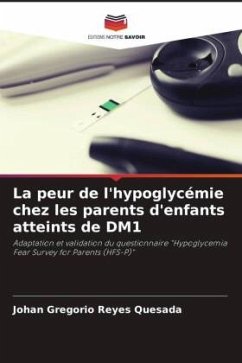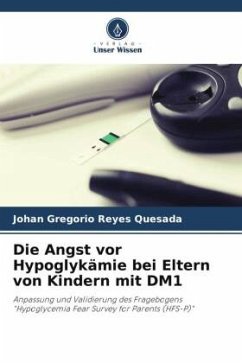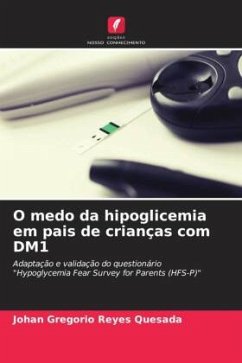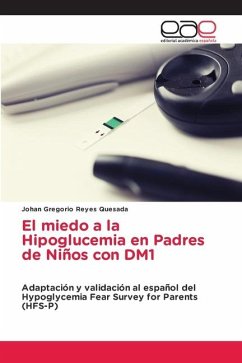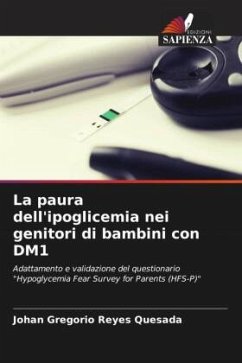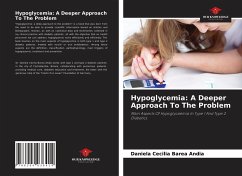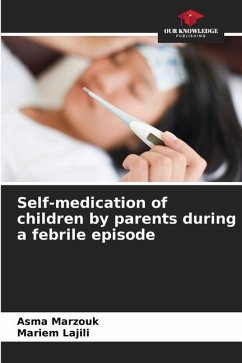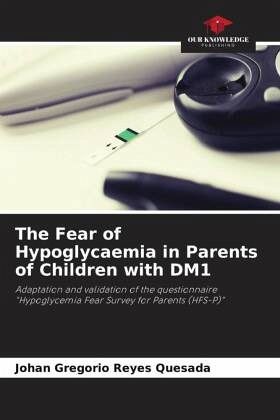
The Fear of Hypoglycaemia in Parents of Children with DM1
Adaptation and validation of the questionnaire "Hypoglycemia Fear Survey for Parents (HFS-P)"
Versandkostenfrei!
Versandfertig in 6-10 Tagen
60,99 €
inkl. MwSt.

PAYBACK Punkte
30 °P sammeln!
The diagnosis of Type 1 Diabetes Mellitus (DM1) not only affects children physiologically, socially and psychologically, but also affects the family environment and, more specifically, their parents or primary caregivers. Among the many complications of DM1, the most frequent is hypoglycemia. Frequent or severe hypoglycemia in children has been related to psychological alterations, and they can also develop fear of hypoglycemia (FH), described as a barrier that influences the achievement of therapeutic objectives and adherence to treatment by children and their families. It is important to det...
The diagnosis of Type 1 Diabetes Mellitus (DM1) not only affects children physiologically, socially and psychologically, but also affects the family environment and, more specifically, their parents or primary caregivers. Among the many complications of DM1, the most frequent is hypoglycemia. Frequent or severe hypoglycemia in children has been related to psychological alterations, and they can also develop fear of hypoglycemia (FH), described as a barrier that influences the achievement of therapeutic objectives and adherence to treatment by children and their families. It is important to detect and measure this phenomenon in parents in order to develop interventions that decrease this fear and improve children's disease control and family quality of life. The general objective of this study was to validate the Hypoglycemia Fear Survey for Parents (HFS P) in Spanish as a tool for detecting MaH in fathers, mothers and caregivers of children with DM1. The methodology used was the cultural adaptation of the instrument and a subsequent analysis of its psychometric properties in the target context.





